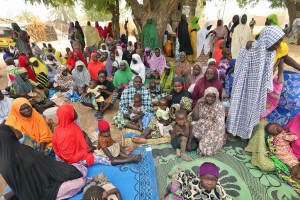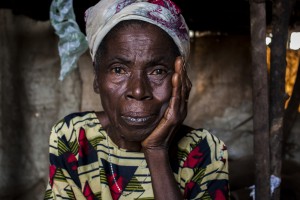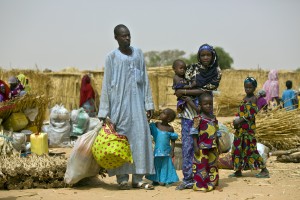Tailored solutions for Malian refugees with disabilities in Mauritania
UNHCR recognizes the achievements and supports refugees with disabilities to rebuild their life in harsh environments. Meet Mohamed in the arid lands of Mauritania.
MBERA CAMP, MAURITANIA, 3 December 2015 (UNHCR) – After his house in the northern Malian town of Léré was destroyed in March 2012, thirty-two-year-old Mohamed Outta fled with his family to Mauritania. He made Mbera refugee camp his home. Today, more than 50,000 Malians refugees populate the camp, which is located in an arid region in the south-eastern part of Mauritania. Among them, 450 people living with disabilities – including Mohamed – have been identified and are provided with special assistance by UNHCR and its partners, such as medical and psychosocial support, door-to-door food delivery, non-food assistance and self-reliance opportunities. As the International Day of Persons with Disabilities is celebrated today (3 December), their stories are often inspiring examples of resilience and strength in the face of great odds.
Like many other Malian refugees living in Mauritania, Mohamed lost everything in the conflict and had to rebuild his life. Unlike most of his neighbours and friends in the camp, however, he had to come to terms with his own physical limitations. “I do not think I was born with a disability”, he explains. “I just remember that at some point of my childhood, I had a very strong headache, and then my left arm was left paralysed after that, and stopped growing”. Mohamed does not recall going to the doctor’s at the time and to this day is not able to put a name on a specific illness that could have hit him. In the camp, he finds that the efforts required to do basic activities such as carrying water or food are beyond his physical strength.
 UNHCR/H.Pes
UNHCR/H.Pes“It is only by acknowledging our weaknesses that we can develop our true strengths”.
“It was following a failed butchery activity that I was able to start my actual business activity. Sometimes, it is only by acknowledging our weaknesses that we can develop our true strengths”. Since he decided to develop his potential, Mohamed feels more capable of providing himself for a living despite his disability.
 UNHCR/H.Pes
UNHCR/H.Pes32-year-old Mohamed Outta runs a small fabrics shop in Mbera refugee camp, Mauritania.

















